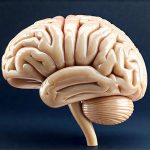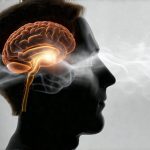The frustrating experience of mental fog – that pervasive clouding of cognitive function characterized by difficulty concentrating, memory lapses, and an overall sense of sluggishness – is something many people encounter at some point in their lives. Often dismissed as simply stress or lack of sleep, its origins can be surprisingly complex, extending far beyond the confines of the brain itself. Increasingly, research points to a powerful connection between our gut health and cognitive function, suggesting that inflammation within the digestive system may play a significant role in the development of this debilitating mental state. Understanding this link is crucial not only for identifying potential causes but also for exploring holistic strategies to restore clarity and focus.
For years, the brain was considered largely isolated, functioning independently from other bodily systems. However, we now know that’s far from true. A bidirectional communication network, often referred to as the gut-brain axis, constantly relays information between these two vital organs. This intricate system involves neural pathways, hormonal signals, and crucially, the microbiome – the trillions of bacteria, fungi, viruses, and other microorganisms residing in our gut. When this ecosystem is disrupted, leading to inflammation, it can send distress signals that impact brain function and contribute to a wide range of cognitive issues including mental fog, anxiety, and even depression. This isn’t simply about feeling ‘off’; it represents a tangible physiological connection with profound implications for overall wellbeing. Can gut sensitivities can also contribute to these issues.
The Gut-Brain Axis: A Two-Way Street
The gut-brain axis isn’t a one-way street; it’s a dynamic interplay where the health of one profoundly influences the other. Think of your gut as an incredibly sensitive ecosystem, susceptible to disruption from various factors like diet, stress, antibiotics, and environmental toxins. When this ecosystem becomes imbalanced – with harmful bacteria outnumbering beneficial ones – it triggers inflammation, a natural immune response designed to protect the body. However, chronic inflammation is where problems arise. This persistent inflammatory state doesn’t remain localized in the gut; it spills over into systemic circulation, reaching the brain and impacting its ability to function optimally. Can food sensitivities are a common trigger for this inflammation.
This happens through several mechanisms. Inflammatory molecules released by the gut can cross the blood-brain barrier – a protective shield around the brain – directly influencing neuronal activity. Furthermore, inflammation affects neurotransmitter production, those chemical messengers essential for communication between brain cells. Serotonin, often dubbed the “happy hormone,” is largely produced in the gut, and its levels are significantly impacted by gut health. Disruptions to serotonin production can affect mood, sleep, and cognitive function. The vagus nerve, a major cranial nerve connecting the gut and brain, acts as a direct communication line, transmitting signals related to inflammation and microbial activity. Do chewing gums can also disrupt this delicate balance.
Therefore, addressing gut health isn’t just about digestive comfort; it’s about supporting cognitive resilience and protecting brain function. A healthy gut microbiome is characterized by diversity – a wide range of bacterial species working in harmony. This diversity strengthens the gut barrier, reduces inflammation, and promotes optimal neurotransmitter production, all contributing to enhanced mental clarity and focus.
Inflammation: The Common Denominator
Inflammation isn’t inherently bad; it’s an essential part of our immune system. However, when it becomes chronic – low-grade but persistent – it can wreak havoc on the body and brain. In the context of gut health, inflammation often stems from a “leaky gut,” also known as increased intestinal permeability. This occurs when the tight junctions between cells lining the intestinal wall become compromised, allowing undigested food particles, bacteria, and toxins to escape into the bloodstream. The immune system recognizes these foreign invaders, triggering an inflammatory response that contributes to systemic inflammation. Can caffeine worsen this inflammatory process?
This chronic inflammation can then disrupt brain function in several ways. It interferes with synaptic plasticity – the brain’s ability to form new connections, crucial for learning and memory. Inflammatory molecules also impair mitochondrial function within brain cells, reducing energy production and leading to fatigue and cognitive decline. Moreover, persistent inflammation damages neurons themselves, potentially accelerating neurodegenerative processes over time. Identifying and addressing the root causes of gut inflammation is therefore paramount in mitigating its impact on mental fog. Why even healthy diets can sometimes contribute to inflammation should also be considered.
Identifying Potential Gut Inflammation Triggers
Pinpointing the sources of gut inflammation can be challenging as they are often multifaceted. However, several common triggers warrant investigation:
- Dietary Factors: A diet high in processed foods, sugar, and unhealthy fats promotes inflammation and disrupts the microbiome. Conversely, a diet rich in fiber, fruits, vegetables, and fermented foods supports gut health and reduces inflammation. Food sensitivities (like gluten or dairy) can also trigger inflammatory responses in susceptible individuals.
- Stress: Chronic stress significantly impacts gut health. It alters gut motility, weakens the gut barrier, and disrupts the microbiome, all contributing to increased inflammation. Implementing stress management techniques like mindfulness, yoga, or meditation is essential for supporting gut health.
- Antibiotics: While life-saving when necessary, antibiotics can indiscriminately kill both harmful and beneficial bacteria in the gut, disrupting the microbiome’s delicate balance and increasing susceptibility to inflammation. Probiotic supplementation after antibiotic use may help restore microbial diversity.
Restoring Gut Health: A Multi-Pronged Approach
Addressing gut inflammation requires a holistic approach focused on restoring microbial balance and strengthening the gut barrier. This isn’t about quick fixes; it’s about sustainable lifestyle changes that support long-term gut health. Here are some strategies to consider:
- Dietary Modifications: Focus on eliminating inflammatory foods (processed foods, sugar, excessive alcohol) and incorporating anti-inflammatory choices like fatty fish rich in omega-3s, berries, leafy greens, and fermented foods. Consider an elimination diet under the guidance of a healthcare professional to identify potential food sensitivities.
- Probiotic & Prebiotic Support: Probiotics introduce beneficial bacteria into the gut, while prebiotics provide nourishment for those bacteria to thrive. Incorporate probiotic-rich foods like yogurt, kefir, sauerkraut, and kimchi, or consider a high-quality probiotic supplement. Prebiotic sources include onions, garlic, asparagus, bananas, and oats.
- Stress Management: Prioritize stress reduction techniques that resonate with you. This could involve meditation, deep breathing exercises, yoga, spending time in nature, or engaging in hobbies you enjoy.
The Role of Testing & Professional Guidance
While lifestyle modifications can often significantly improve gut health, sometimes further investigation is needed. Several tests can provide valuable insights into the state of your gut microbiome and identify potential imbalances. These include stool analysis (to assess microbial diversity), breath tests (to detect small intestinal bacterial overgrowth – SIBO), and food sensitivity testing. Can cold weather also play a role in gut health?
It’s crucial to work with a qualified healthcare professional, such as a functional medicine doctor or registered dietitian, who can interpret these results and develop a personalized treatment plan tailored to your specific needs. Self-treating based on internet research is discouraged; accurate diagnosis and individualized recommendations are essential for achieving optimal outcomes. Remember that mental fog isn’t something to simply endure – by addressing the underlying gut health issues, you can reclaim clarity, focus, and overall cognitive wellbeing. Can food intolerances may also contribute to inflammation and should be considered during evaluation.


















